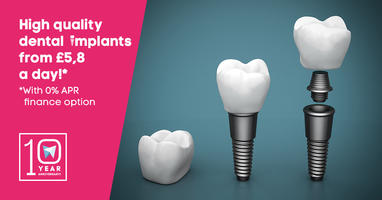“Dear doctor,
I have two teeth missing on my upper jaw, on the left side. I am thinking of replacing them, and was looking into getting the most permanent solution possible. I have heard about dental implants, and have heard that they are the best solution for this kind of problem. However, I have recently read that they are not a permanent solution at all, but are only good for like 10 years. Is this true? If it is, then what sort of really permanent solutions do you have? I am 34 years old, and do not want to start losing my teeth."
Sincerely, Seth
Hi Seth,
I do not know where you got the information form, but it is faulty at best, and outright false at worst. Dental implants usually last around 15 years, and if cared for probably, they can and will last you a lifetime. They are a permanent solution to the replacement of teeth, and are the best, and indeed the only form of complete tooth prostheses. This is the only form of tooth prosthesis that presents a solution to the problem of tooth loss as a condition, as this is the only form of dental prosthesis that replaces the tooth root as well as the crown, this way the entire tooth gets replaced, not just the immediately functional parts.

The condition that I believe you have been (mis)informed about is referred to as peri-implantitis. In this condition, the dental implant wears out the surrounding soft tissues, and can even start to wear out the jawbone around the dental implant. There are two kinds; the first and more common type is bacterial infection caused peri-implantitis. A bacterial culture will be present on the dental implant or in the mouth, and starts to breed in the implantation site, eating away at the soft tissues and the bone, giving the implant room to wiggle, and thus the dental implant starts destroying the structures around it. The second is mechanical, and is much rarer; this is when the dental implant was pőlaced poorly, and room was left for the dental implant to move in, and thus when occlusal forces of biting and chewing are presented to the dental implant, it will move around. Only micromovements at first, fractions of a millimeter, but since the dental implant is harder than the alveolus and the jawbone, eventually these small movements will become bigger, until the dental implant is loose, and has destroyed potentially quite an exhaustive part of the dental implant.
From these descriptions it should be obvious that peri-implantitis is only a problem if there is something wrong with the actual implantation. Ideally, this problem is completely circumvented by the fact that dental implants are ideally placed tightly into the jawbone in a way to prevent movement, and in a way that can handle occlusal forces. In 15 years they can start to become looser, but this is also not inevitable, but rather only happens sometimes, and can be remedied with a larger dental implant.
This is the best form of tooth replacement that medical science has to offer, currently. It is not perfect, and peri-implantitis is indeed a big problem, that bioengineers and clinical researchers are combating and seeking to overcome. It is, by far, your best bet.
image: 1.

